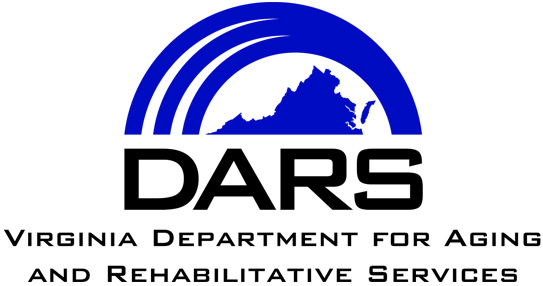Chapter 8.10 Contents:[REVISED: 9/15/22] - This policy shall not apply to Cost Of Attendance (COA) for school training services subject to the RS-25. For school training room, board, and personal and miscellaneous costs, see Chapter 7, SCHOOL.
- Definition.
Maintenance means (per Public Law 114-18 and 2016 Federal Regulation 34 CFR § 361.5 (c)(35)), monetary support for the extra living expenses (such as shelter, food, clothing, incidentals) needed for VR and is not for normal living expenses the client would incur if not in the VR program. Maintenance shall not be used to alleviate poor or abject living conditions, and the counselor should refer clients needing on-going long term assistance with normal living expenses to other agencies and programs (such as TANF, WIC, food stamps, General Relief, fuel assistance program, summer heat cooling centers, homeless shelters, etc.). Maintenance may be used for clients with third party benefits for normal living expenses (such as Supplemental Security Income (SSI) and Social Security Disability Income (SSDI), Workers Compensation, Unemployment Compensation, personal injury settlement, etc.).
- Not a stand alone service.
Maintenance must be needed to access an assessment service under a Trial Work Experience Plan or Extended Evaluation Plan. Under an Individualized Plan for Employment (IPE), it must be needed to access an assessment service, physical/mental restoration service, training not subject to RS-25, or to accept a job offer. When the client no longer receives the authorized service that the Maintenance services support, the counselor shall terminate the Maintenance services.
- Clothing.
The counselor may authorize a clothing budget when the counselor documents the client does not have appropriate clothing for training or service provided in the workplace (such as situational assessment, unpaid work experience, job interviews, work uniform or work boots not provided by employer, career exploration job shadowing, etc.).
- Meal for UWE.
When unpaid work experience (UWE) overlaps mealtime, the counselor may authorize the actual meal cost not to exceed the maximum reimbursement rate allowed in the Meals and Incidental Expenses for state employees for the geographic area in which the client is working.
- Lodging.
The counselor may authorize up to eight (8) weeks, not to exceed $500 per month, for overnight lodging and meals needed to access an out-of-town assessment service, physical/mental restoration service, or training not subject to RS-25.
- Incidentals.
The counselor may authorize incidentals (toiletries, laundry, etc.) in conjunction with lodging. Before the counselor authorizes and approves payment, the client must submit an itemized list with costs to document service need and cost reasonableness.
- Relocation.
- Out-of-town permanent relocation may be authorized only if the counselor has a copy of the written job offer including start date and salary/wage and client written acceptance, and the client and counselor agree relocation is required to achieve stable employment.
- Relocation assistance may include actual cost of: initial one month rent due at lease signing, any required initial security deposit due at lease signing, and basic utility hook up cost not included in rent (electricity, water, telephone, natural gas, not internet or cable TV). The rental lease and utility accounts must be in the client name (for legal landlord-tenant reasons), not agency name.
- The counselor must authorize the rent to the landlord (to ensure payment), not to the client.
- For moving expenses (moving van, packing service, travel, etc.), see Chapter 8.20, TRANSPORTATION, Policy 1.
- If an out-of-town job starts before the client signs a lease for longer than 1 month, the counselor may authorize the number of temporary overnights needed, up to 45 days of hotel/motel/extended stay lodging and meals - with the food and lodging total not to exceed $500 the first month and $250 for the remaining period. The client is responsible for obtaining affordable housing and shall (per 2016 Federal Regulation 34 CFR § 361.5 (c)(35) be financially responsible for additional housing costs, regardless of the RS-13 results.
- The counselor shall not authorize Maintenance for a client who quits a job unless the counselor documents the reason is disability-related or the job was inappropriate employment.
- DRS staff shall not (per federal OMB Circular A-87 revised August 29, 1997) authorize entertainment costs.
- Client failure to follow through on client responsibilities as agreed by the counselor and client is sufficient cause to deny or withdraw DRS Maintenance services.
- For definition of a family member who may receive Maintenance, see Chapter 8.04, FAMILY, Policy 1.
- Maintenance shall (per 2016 Federal Regulation 34 CFR § 361.53) be subject to comparable benefits policy (see Chapter 14.2, COMPARABLE, Policy 1).
- Maintenance, except when needed for a VR assessment service, shall (per 2016 Federal Regulation 34 CFR § 361.54) be subject to consumer financial participation policy (see Chapter 14.3, FINANCIAL, Policy 1).
- Services shall be subject to DRS established purchasing policies and procedures. For encumbering funds, see Chapter 14.1, PURCHASING, Policy 1. Use the S/I code for room, board, clothing, and incidentals listed in the DARS Services Reference Manual, Other services, Maintenance category.
Links to the Code of Federal Regulations (CFR) are currently unavailable while we await federal changes to the vocational rehabilitation program. Upon promulgation of the final regulations the links will be updated and activated. |

